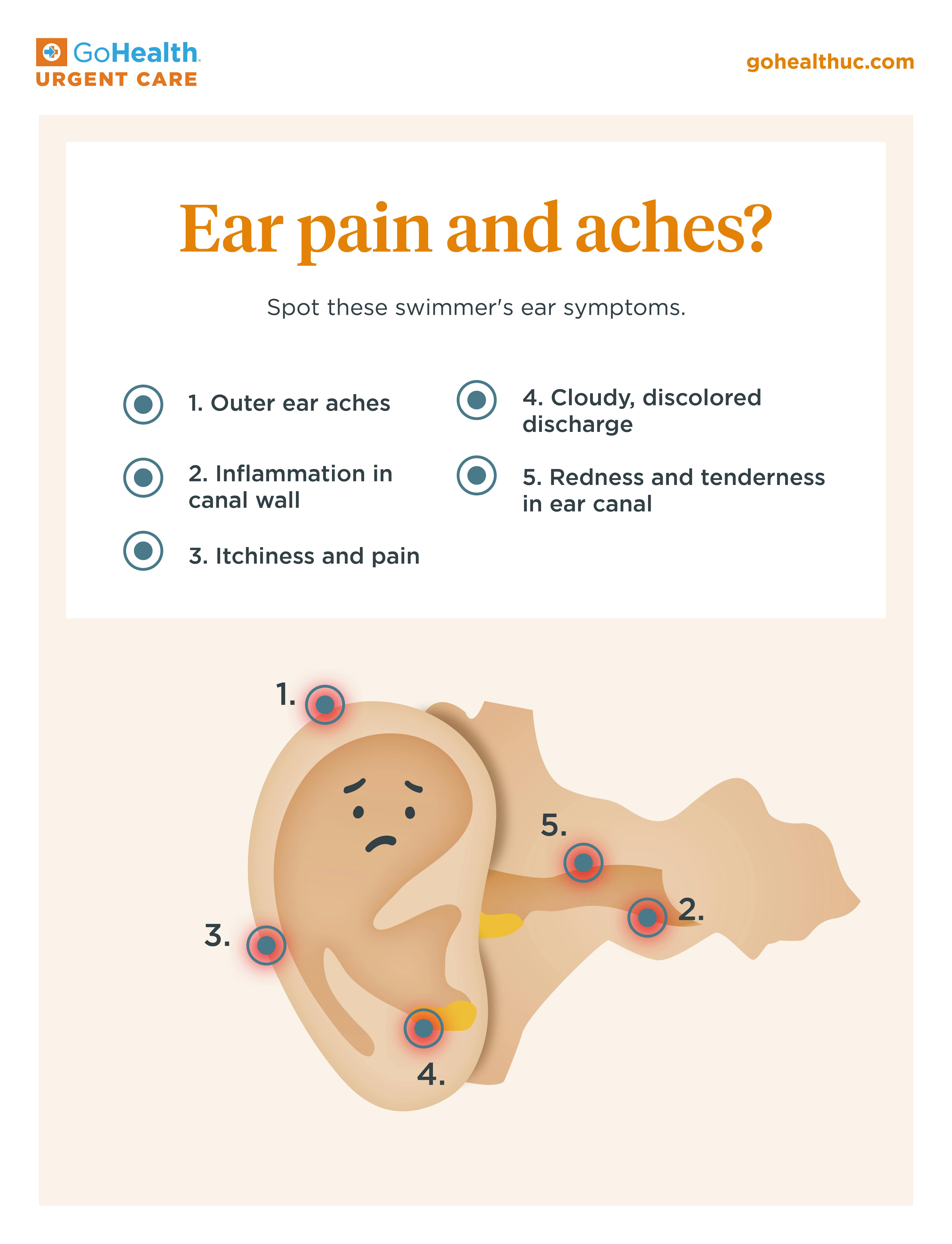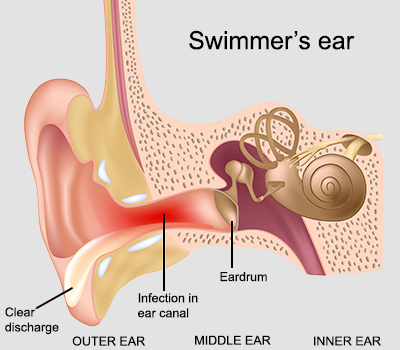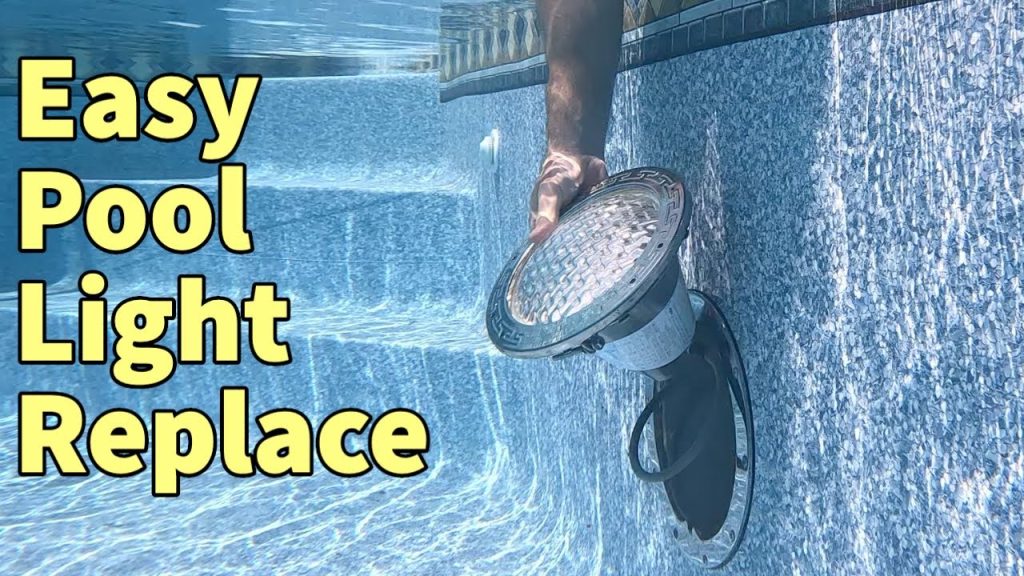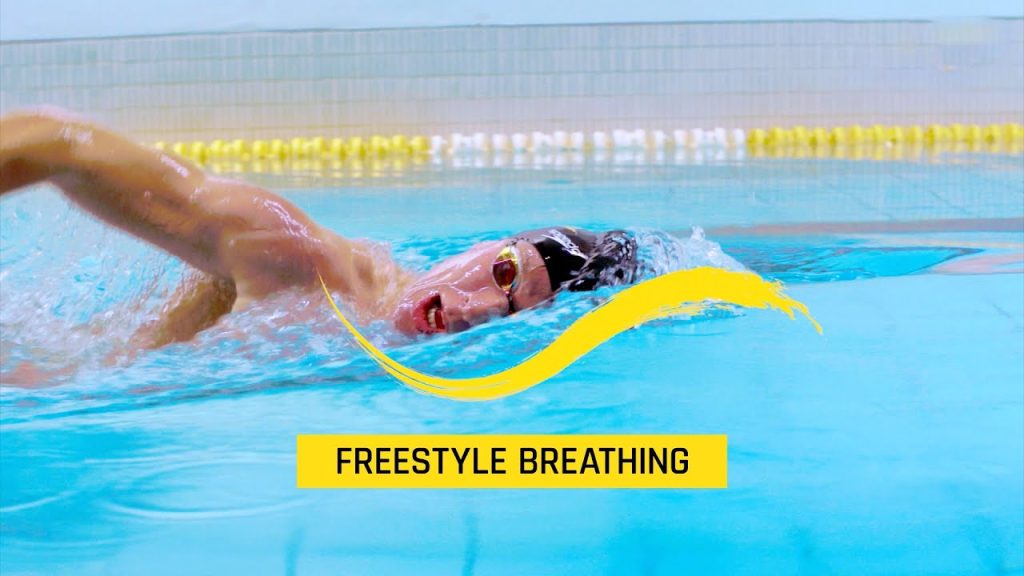Ear pain after swimming can be uncomfortable. It can also spoil your fun.
Swimming is a great way to exercise and relax. But ear pain can ruin the experience. This pain often happens because of water trapped in the ear. Sometimes, it can lead to infections. Knowing how to relieve this pain is important.
Not only for comfort but also for health. In this blog post, we will discuss simple and effective ways to ease ear pain after swimming. These tips will help you enjoy swimming without the worry of ear problems. Let’s dive in and find some relief!

Credit: www.gohealthuc.com
Causes Of Ear Pain After Swimming
Ear pain after swimming can be a common issue. Several factors may contribute to this discomfort. Understanding these causes can help you find effective relief and prevent future problems.
Water Trapped In The Ear
Water can easily get stuck in the ear canal while swimming. This trapped water creates a moist environment. Bacteria and fungi thrive in such conditions. This can lead to irritation and pain. Gently tilting your head can help drain the water. You can also use a hairdryer on a low setting. Keep it at a safe distance from your ear.
Swimmer’s Ear Infection
Swimmer’s ear is a common infection. It occurs when bacteria infect the outer ear canal. This can happen if water remains in the ear after swimming. Symptoms include itching, redness, and swelling. Pain can also increase when touching the ear. Over-the-counter ear drops can help. In severe cases, a doctor may prescribe antibiotics.
Immediate Relief Techniques
After a swim, ear pain can be uncomfortable. Immediate relief techniques can help ease the discomfort. These methods are simple and effective. They can be done easily without special tools or medical expertise.
Gravity And Tilting Head
Gravity can help remove trapped water. Tilt your head to the side of the affected ear. Hold this position for a few minutes. Sometimes, you may need to tug gently on your earlobe. This can help release the water.
Another method involves lying down on your side. Ensure your affected ear faces the ground. Stay in this position for several minutes. The water may drain naturally due to gravity.
Chewing Gum Or Yawning
Chewing gum can help relieve ear pain. The jaw movements can open the Eustachian tubes. This can allow trapped water to escape. Yawning works in a similar way.
Try to mimic the motion of yawning. This action can help equalize pressure in the ear. It can also help release trapped water. Both methods are easy and can be done anywhere.
Home Remedies
Ear pain after swimming can be very uncomfortable. Luckily, you can try several home remedies to ease the pain. These remedies are simple and use items you may already have at home.
Warm Compress
A warm compress can help reduce ear pain by improving blood flow and reducing inflammation. Here’s how to use it:
- Soak a clean cloth in warm water.
- Wring out the excess water.
- Place the cloth over the affected ear for 10-15 minutes.
Repeat this process every few hours. Always ensure the cloth is not too hot to avoid burns.
Vinegar And Alcohol Drops
This remedy helps to dry out the ear and kill bacteria. You will need white vinegar and rubbing alcohol.
- Mix equal parts of white vinegar and rubbing alcohol in a small bowl.
- Use a clean dropper to place 2-3 drops into the affected ear.
- Let the drops sit for a few minutes.
- Turn your head to let the mixture drain out.
Important: Do not use this method if you have a perforated eardrum or are unsure about your condition. Always consult a healthcare provider if you are uncertain.
:max_bytes(150000):strip_icc()/can-i-prevent-swimmers-ear-1192235-4ac611527fa043fcb7f0f2b3ef71ec25.jpg)
Credit: www.verywellhealth.com
Over-the-counter Solutions
After a refreshing swim, ear pain can be an annoying issue. Thankfully, there are several over-the-counter solutions to help you find relief. These solutions are easy to use and can be found at most pharmacies. Below are some effective options.
Ear Drops
Ear drops are a common remedy for ear pain caused by swimming. They work by drying out the ear canal and reducing inflammation.
- Hydrogen Peroxide Drops: These drops help to clear out trapped water and disinfect the ear.
- Isopropyl Alcohol Drops: Alcohol can help to evaporate the water and prevent infection.
- Acetic Acid Drops: Acetic acid has antibacterial properties and can help prevent swimmer’s ear.
Use ear drops as directed on the packaging. Tilt your head and drop the solution into the affected ear. Wait a few minutes before tilting your head back to let the fluid drain out.
Pain Relievers
If ear drops are not enough, over-the-counter pain relievers can help manage the discomfort. These medications reduce pain and inflammation.
- Ibuprofen: This is a nonsteroidal anti-inflammatory drug (NSAID) that helps reduce pain and swelling.
- Acetaminophen: This pain reliever is effective for reducing ear pain but does not have anti-inflammatory properties.
Follow the dosage instructions on the packaging. Do not exceed the recommended dose to avoid side effects.
Using these over-the-counter solutions can help relieve ear pain after swimming and make your experience more enjoyable.
Preventive Measures
Relieving ear pain after swimming often starts with taking preventive measures. By protecting your ears before and after swimming, you can significantly reduce the risk of ear infections and discomfort.
Earplugs
Using earplugs is one of the best ways to prevent water from entering your ears. They create a seal that keeps your ear canals dry. Choose earplugs that fit snugly yet comfortably.
| Type of Earplugs | Features |
|---|---|
| Silicone | Moldable, reusable, comfortable |
| Foam | Soft, disposable, easy to use |
| Custom-fitted | Made for your ears, best fit, durable |
Make sure to insert earplugs properly. Improper use can lead to water seeping in. Follow the instructions provided with the earplugs for the best results.
Drying Ears Thoroughly
After swimming, it’s crucial to dry your ears thoroughly. This prevents moisture build-up, which can lead to infections.
- Tilt your head to each side to drain water.
- Use a towel to gently dry the outer ear.
- Consider using a hairdryer on a low setting. Hold it at least a foot away from your ear.
If you’re prone to ear infections, consider using ear-drying drops. These can help evaporate trapped moisture in the ear canal.
When To Seek Medical Help
Ear pain after swimming might signal an infection. Seek medical help if the pain is severe or persists.
Swimming can be fun, but ear pain afterward can spoil the joy. Sometimes, home remedies do not work. Knowing when to seek medical help is crucial. This ensures you address any serious issues promptly.Persistent Pain
If ear pain lasts more than two days, it needs attention. Persistent pain can signal a deeper problem. The ear might have damage or an infection. Do not ignore ongoing discomfort. Early treatment can prevent serious complications.Signs Of Infection
Infections need medical help. Look for these signs: – Redness or swelling in the ear – Fever alongside ear pain – Discharge coming from the ear These signs suggest a possible infection. Infections can worsen quickly. A doctor can provide the right treatment. This ensures the infection does not spread or cause more issues. Swimming is enjoyable. But ear pain can be a concern. Knowing when to seek medical help keeps you safe and healthy. “`Professional Treatments
If home remedies do not relieve your ear pain after swimming, it may be time to seek professional treatments. There are several options available that can effectively reduce discomfort and prevent further complications. Consulting with a healthcare professional can provide you with the best course of action.
Prescription Medication
In some cases, prescription medication may be necessary to treat ear pain. A doctor might prescribe:
- Antibiotic ear drops to fight bacterial infections.
- Antifungal ear drops if a fungal infection is the cause.
- Pain relievers to reduce discomfort and inflammation.
Always follow the prescribed dosage and instructions to ensure effective treatment and avoid side effects.
Ear Cleaning By A Doctor
Another professional treatment option is ear cleaning by a doctor. This procedure can help remove trapped water, earwax, and debris that might be causing pain. The process typically involves:
- Examination of the ear with an otoscope.
- Irrigation using a saline solution to flush out debris.
- Manual removal with specialized tools if irrigation is not sufficient.
Regular ear cleaning by a doctor can prevent infections and ensure ear health. It is especially important for frequent swimmers.
.jpg)
Credit: www.healthyhearing.com
Long-term Ear Care Tips
Taking care of your ears after swimming is essential. It helps prevent ear pain and infections. Here are some long-term tips to ensure your ears stay healthy and pain-free.
Regular Check-ups
Schedule regular check-ups with an ear specialist. Early detection of ear issues prevents long-term damage. Your doctor can also clean your ears safely.
Avoid using cotton swabs. They can push wax deeper into the ear canal. Instead, let your doctor handle ear cleaning during check-ups.
Avoiding Ear Irritants
Water and other irritants can cause ear pain. Always use earplugs while swimming. They keep water out of your ears.
Also, avoid inserting objects like earbuds or fingers into your ears. These can cause irritation or injury.
Here are some tips to avoid ear irritants:
- Use earplugs while swimming.
- Dry your ears gently with a towel.
- Avoid using cotton swabs inside your ear canal.
- Keep your ears away from loud noises.
Follow these simple tips to keep your ears healthy. They will help you enjoy swimming without ear pain.
Frequently Asked Questions
How Can I Prevent Ear Pain After Swimming?
To prevent ear pain after swimming, wear earplugs and swim caps. Dry your ears thoroughly post-swim to avoid infections.
What Home Remedies Help Ear Pain After Swimming?
Home remedies include applying warm compresses and using over-the-counter pain relievers. Tilt your head to drain water.
Can Ear Drops Relieve Ear Pain After Swimming?
Yes, ear drops can help. Use alcohol-based ear drops to dry out trapped water and reduce pain.
Is It Necessary To See A Doctor For Ear Pain?
See a doctor if pain persists, worsens, or is accompanied by discharge. Professional advice ensures proper treatment.
Conclusion
Ear pain after swimming can be quite uncomfortable. Quick action helps. Try the tips we discussed. Dry your ears thoroughly. Use ear drops or a warm compress. If pain persists, see a doctor. Keep your ears dry in the future.
Prevention is key. Enjoy swimming without the worry of ear pain. Stay safe and healthy.



